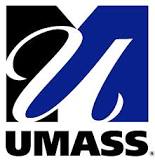Efficacy and Outcomes of a Non-Pharmacological Intervention for Neonatal Abstinence Syndrome
| Status: | Enrolling by invitation |
|---|---|
| Healthy: | No |
| Age Range: | Any |
| Updated: | 5/3/2018 |
| Start Date: | March 9, 2017 |
| End Date: | July 2021 |
A Randomized Controlled Study of Stochastic Vibrotactile Stimulation for Neonatal Abstinence Syndrome: Therapeutic Efficacy and Neurobehavioral Outcomes
The purpose of this study is to examine the efficacy of a specially-constructed crib mattress
that delivers gentle vibrations (stochastic vibrotactile stimulation) as a complementary,
non-pharmacological intervention for treating drug withdrawal in newborns exposed to opioids
in utero.
that delivers gentle vibrations (stochastic vibrotactile stimulation) as a complementary,
non-pharmacological intervention for treating drug withdrawal in newborns exposed to opioids
in utero.
This study will test the therapeutic efficacy of stochastic vibrotactile stimulation (SVS)
for reducing withdrawal symptoms, pharmacological requirement and hospitalization, and for
improving neurobehavioral developmental outcomes in opioid-exposed newborns.
Candidates at-risk for NAS due opioid exposure in utero will be identified to investigators
by medical caregiver and/or prescreened using HIPAA Waiver for recruitment
(maternal-prenatal; infant-postnatal). Infants will be randomized into either SVS
(complementary to standard of care) or Standard Clinical Care (SCC), restricted by equipment
(mattress) availability. Infants will be enrolled within 24 hours post birth and participate
throughout hospitalization. Infants assigned SVS will receive daily intervention of
continuous SVS throughout hospitalization using a specially constructed crib mattress that
delivers gentle vibrations at preset intervals.
Specific Aim 1. Determine the efficacy of SVS as a non-pharmacological therapy complementary
to standard clinical care (SCC) for reducing severity and duration of opioid withdrawal in
newborns compared to SCC alone. Quantify clinical variables: NAS severity, days in hospital,
velocity of weight gain, cumulative morphine dose.
Specific Aim 2. Compare neurobehavioral outcomes in fetal drug-exposed infants between
infants who received SVS and those who received SCC. Longitudinal outcomes assessment at 1
month, 6-months and 1 year to test whether early intervention with SVS compared to standard
care improves physical, social, emotional and cognitive development.
for reducing withdrawal symptoms, pharmacological requirement and hospitalization, and for
improving neurobehavioral developmental outcomes in opioid-exposed newborns.
Candidates at-risk for NAS due opioid exposure in utero will be identified to investigators
by medical caregiver and/or prescreened using HIPAA Waiver for recruitment
(maternal-prenatal; infant-postnatal). Infants will be randomized into either SVS
(complementary to standard of care) or Standard Clinical Care (SCC), restricted by equipment
(mattress) availability. Infants will be enrolled within 24 hours post birth and participate
throughout hospitalization. Infants assigned SVS will receive daily intervention of
continuous SVS throughout hospitalization using a specially constructed crib mattress that
delivers gentle vibrations at preset intervals.
Specific Aim 1. Determine the efficacy of SVS as a non-pharmacological therapy complementary
to standard clinical care (SCC) for reducing severity and duration of opioid withdrawal in
newborns compared to SCC alone. Quantify clinical variables: NAS severity, days in hospital,
velocity of weight gain, cumulative morphine dose.
Specific Aim 2. Compare neurobehavioral outcomes in fetal drug-exposed infants between
infants who received SVS and those who received SCC. Longitudinal outcomes assessment at 1
month, 6-months and 1 year to test whether early intervention with SVS compared to standard
care improves physical, social, emotional and cognitive development.
Inclusion Criteria: Eligible subjects are infants currently in the NICU or Newborn Nursery
at University of Massachusetts Memorial Hospital or at Magee Women's Hospital of UPMC and:
- Full-term infants (≥37 wks gestational age)
- Newborns at risk for NAS due to opioid-exposure in utero
- At-risk infants will be infants who present with confirmed meconium and/or urine
toxicology report and/or documented medical record for opioids (e.g., methadone,
buprenorphine/subutex, oxycodone, heroin); may also have prenatal exposure to
benzodiazepines, barbiturates, amphetamines, cannabinoids, alcohol, nicotine and/or
caffeine.
Exclusion Criteria: Eligible infants meeting the inclusion criteria above will be excluded
from participation in the study if he/she:
- Born less than <37weeks.
- Has a clinically significant congenital abnormality
- Has a clinically significant fetal anomaly
- Has an adverse pregnancy outcome
- Has hydrocephalus or intraventricular hemorrhage >grade 2
- Has a seizure disorder not related to drug withdrawal
- Has a clinically significant cardiac shunt
- Has anemia (hemoglobin<8g/dL)
- Requires mechanical respiratory support
- Has MRSA or infection at time of the study
We found this trial at
1
site
Univ of Massachusetts Med School As the commonwealth's only public medical school, we take seriously...
Click here to add this to my saved trials
